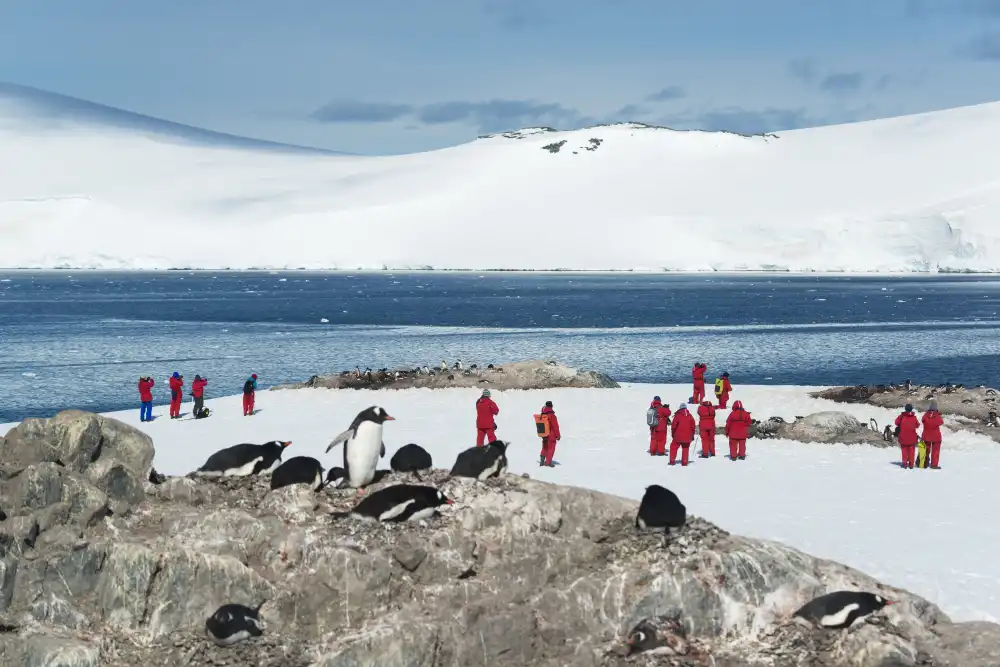Antarctica: The Last Frontier of Wilderness, Science, and International Cooperation

Antarctica: The Last Frontier of Wilderness, Science, and International Cooperation
Antarctica, the southernmost continent, is a vast, icy wilderness that has captured the human imagination for centuries. Unlike other regions explored in this series, Antarctica is unique because it is not a country but an entire continent dedicated to peace, science, and environmental preservation under the Antarctic Treaty System. This exploration delves into the continent's unparalleled natural beauty, its role as a global scientific laboratory, the environmental challenges it faces, and the educational and research collaborations that exemplify international cooperation at its best.
Antarctica's Pristine Wilderness and Biodiversity
Antarctica is the coldest, windiest, and most remote continent, home to breathtaking landscapes of ice sheets, mountains, and some of the world's most unique wildlife. The continent's inhabitants, including penguins, seals, and whales, have adapted to life in extreme conditions, offering invaluable insights into resilience and ecosystems' dynamics.
The continent's ice sheets hold the majority of the planet's fresh water, playing a crucial role in global climate regulation. The Southern Ocean, encircling Antarctica, is a critical driver of the world's ocean currents and climate patterns, making the continent a key focus of climate change research.
A Global Scientific Laboratory
Antarctica's extreme environment and untouched ecosystems make it an invaluable scientific laboratory for research in various fields, including glaciology, meteorology, marine biology, and astronomy. Research stations scattered across the continent, operated by countries from around the globe, facilitate studies that can only be conducted in the unique conditions that Antarctica offers.
The Antarctic Treaty, signed in 1959, designates the continent as a natural reserve devoted to peace and science. The treaty prohibits military activity, mineral mining, and nuclear testing, ensuring that scientific exploration and environmental protection are the primary activities in Antarctica.
Environmental Challenges and Conservation Efforts
Despite its remote location, Antarctica faces significant environmental challenges, including climate change, ocean acidification, and the impact of human activities. The rapid melting of Antarctic ice sheets and glaciers due to global warming poses a significant threat to global sea levels and biodiversity.
Conservation efforts, such as the establishment of Marine Protected Areas (MPAs) in the Southern Ocean, aim to preserve the continent's unique ecosystems and wildlife. International cooperation is key to these efforts, with the Antarctic Treaty System providing a framework for collective action to protect the continent's environmental integrity.
Educational and Research Collaborations: Fostering Global Cooperation
Antarctica's status as a hub of scientific research fosters educational and research collaborations that transcend national boundaries. Scientists and researchers from around the world, including those from countries like Australia, participate in multinational projects, contributing to our understanding of the continent and its global significance.
Educational programs and initiatives, such as the Council of Managers of National Antarctic Programs (COMNAP) and the Scientific Committee on Antarctic Research (SCAR), promote international scientific cooperation and offer opportunities for young researchers and students to engage in Antarctic research. These programs highlight the importance of training the next generation of scientists to continue the work of understanding and preserving this unique environment.
The Role of Antarctica in Global Education
While direct educational opportunities in Antarctica are limited to research and higher education collaborations, the continent plays a vital role in global environmental education. Through documentaries, online courses, and virtual expeditions, Antarctica's ecosystems and scientific research are brought to classrooms around the world, raising awareness about environmental stewardship and the importance of international cooperation in addressing global challenges.
Conclusion: Antarctica's Legacy of Peace, Science, and Protection
Antarctica stands as a testament to the possibilities of international cooperation for the greater good. The continent's dedication to peace, scientific research, and environmental conservation serves as a model for global governance and collective action. As humanity faces unprecedented environmental challenges, Antarctica reminds us of the importance of preserving the natural world and the value of working together across national boundaries to safeguard our planet's future.
This exploration of Antarctica underscores the continent's role as a beacon of international collaboration, scientific discovery, and environmental stewardship. As we continue to learn from and protect this last frontier, Antarctica's legacy will undoubtedly inspire future generations to cherish and preserve the natural world.











